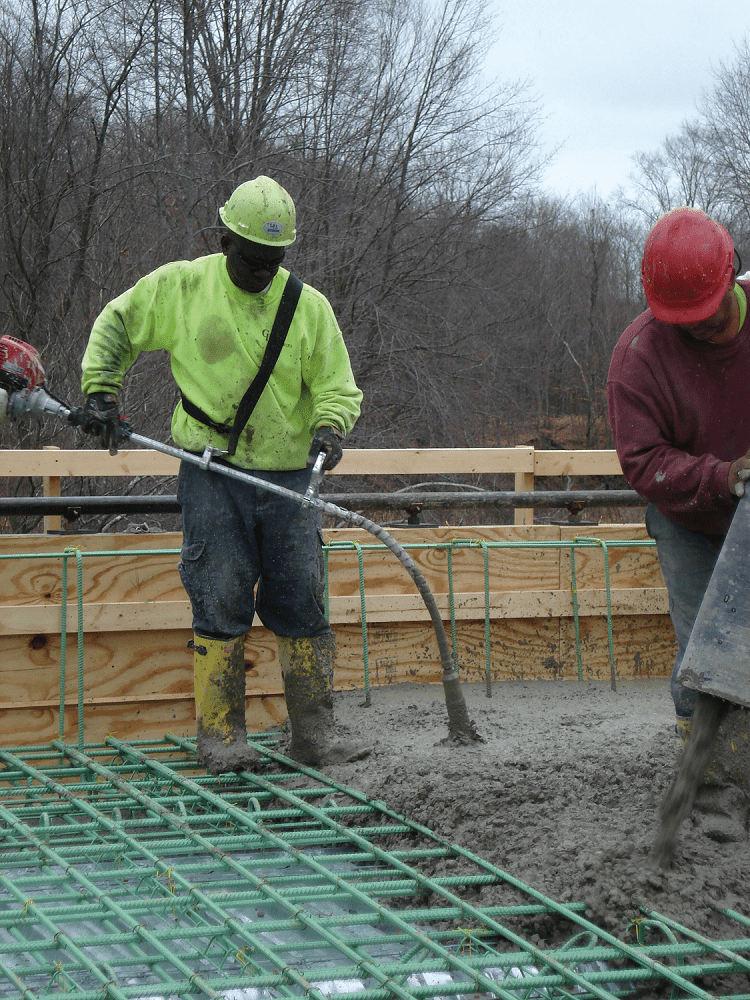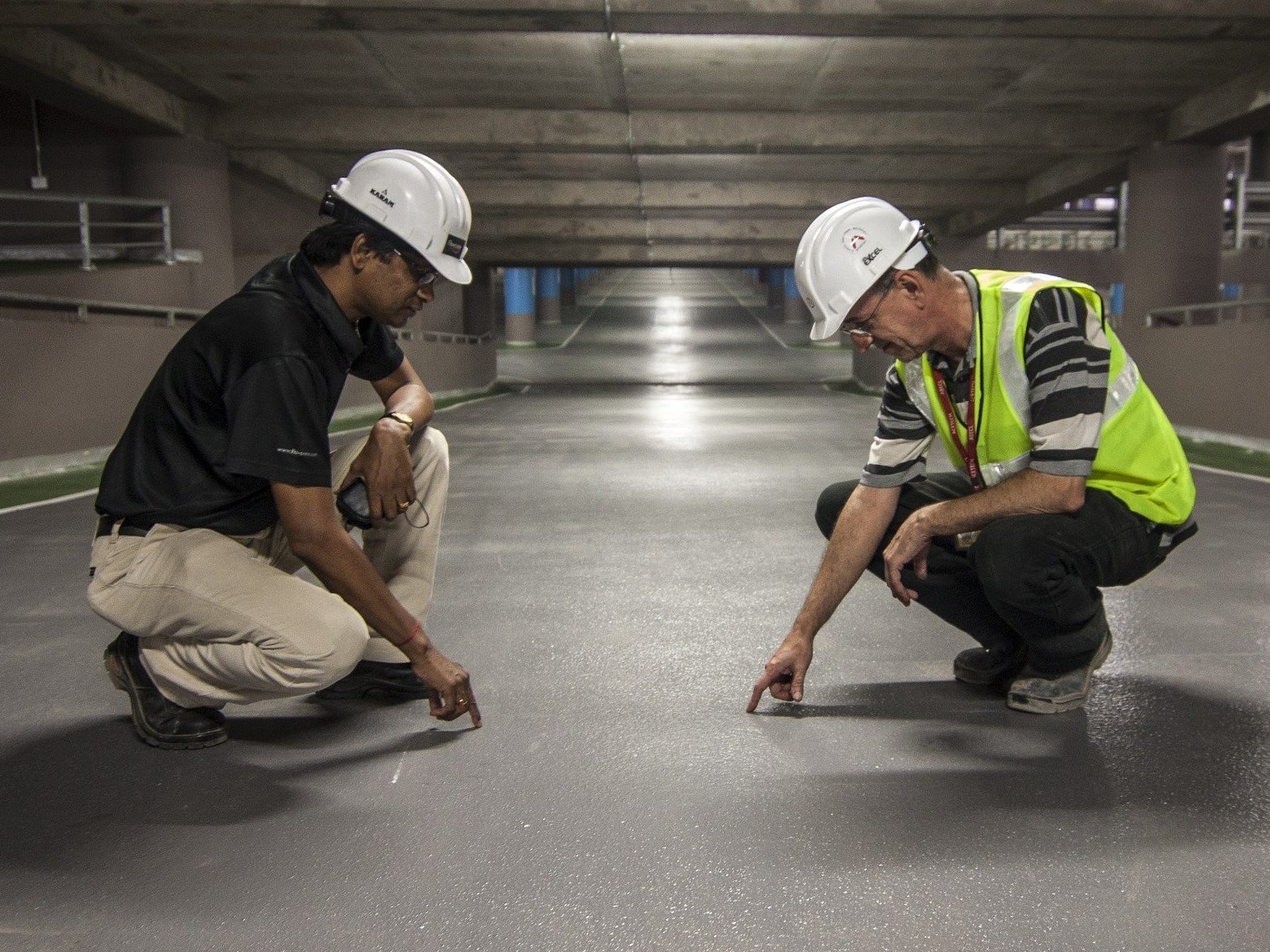The Necessary Duty of Concrete Foundation in Structural Honesty and Longevity
When it involves developing a residential property, the structure is more essential than you might believe. Concrete foundations offer unmatched toughness and sturdiness, ensuring your framework can endure numerous ecological obstacles. Without a strong base, you risk potential concerns like shifting or splitting, which can endanger security and worth. Comprehending the nuances of concrete structures can be the key to protecting your financial investment for many years to come. What should you consider next?
Recognizing the Importance of Concrete Foundations
Concrete structures are vital to the total security of any type of framework, as they give the essential assistance required to stand up to different loads and ecological conditions. When you think of building a home or an industrial area, the foundation is the initial thing you ought to take into consideration. It acts as a barrier versus wetness, securing your residential property from water damage. A well-placed concrete foundation likewise protects against settling and moving, which can bring about fractures in wall surfaces and floors. You'll wish to ensure that the foundation is correctly created and enhanced, as this affects the longevity of your structure. In addition, a solid structure can improve energy effectiveness by lowering air leaks. Bear in mind, disregarding the significance of a concrete structure can lead to costly repair services down the line. So, buying a quality structure upfront is crucial for the honesty and sturdiness of your structure.
Advantages of Concrete Foundations for Architectural Honesty
While many aspects add to a building's structural stability, concrete foundations offer unmatched durability and toughness. You'll value that concrete can stand up to extreme climate condition, resisting both moisture and temperature level variations. This durability suggests your framework is much less likely to experience splitting or moving gradually, which can compromise its safety.Additionally, concrete's intrinsic weight gives a solid base, avoiding movement throughout all-natural occasions like quakes or floodings. When you pick a concrete structure, you're additionally choosing low upkeep; unlike wood, it won't rot or bring in bugs, conserving you money and time in repairs.Moreover, concrete's fire resistance uses added safety, guaranteeing your framework can endure heats without substantial damage. In general, buying a concrete foundation means you're prioritizing the lasting stability and stability of your structure, making it a wise selection for any kind of construction job.
Usual Kinds Of Concrete Foundations
When it pertains to constructing structures, comprehending the usual kinds of concrete foundations can assist you make notified choices for your project. The most common types consist of slab-on-grade, crawl area, and complete cellar foundations.A slab-on-grade structure is a straightforward, cost-efficient alternative, where a thick concrete slab is put directly on the ground. This kind works well in cozy climates, as it minimizes warmth loss.Crawl space structures elevate the home a little above ground, permitting for ventilation and accessibility to plumbing and electric systems. This design can aid avoid moisture issues.Full basement structures use additional living or storage area while providing exceptional structural support. They call for more excavation and are usually used in chillier environments to avoid frost heave.
Elements to Take Into Consideration When Designing a Concrete Structure

Ideal Practices for Installing Concrete Foundations
When you're setting up a concrete foundation, appropriate site preparation is important to guarantee security (West Coast General Engineering industrial concrete). You'll additionally require to understand reinforcement methods to boost toughness and sturdiness. Don't neglect the treating process, as it plays an essential function in accomplishing a solid foundation.
Site Preparation Relevance
Although it might appear uncomplicated, appropriate site prep work is crucial for ensuring a strong and sturdy concrete structure. Start by getting rid of the location of any type of debris, vegetation, or natural material that might compromise the foundation's honesty. Next off, evaluate the soil kind and compaction; you may require to excavate or include materials to develop a steady base. Degree the ground to ensure also weight distribution and stay clear of clearing up issues later. Setting up proper drain systems is also important to protect against water build-up, which can weaken the structure in time. Mark out the structure's dimensions precisely to lead the pouring process. By adhering to these actions, you'll set the stage for a successful concrete foundation that stands the examination of time.
Reinforcement Methods Clarified
Once the site is effectively prepared, the following action in ensuring a strong concrete foundation includes applying effective support strategies. pop over to this site You should begin by utilizing steel rebar, which provides tensile stamina and assists avoid fracturing. Lay the rebar in a grid pattern, making certain it rises using spacers to preserve appropriate insurance coverage. In addition, take into consideration using cable mesh for added assistance, especially in areas based on hefty lots. Don't fail to remember to connect the rebar junctions firmly with cord. For bigger structures, fiber support can boost resilience, decreasing the danger of contraction splits. Constantly follow local building regulations and standards to make certain conformity. By using these support methods, you'll substantially enhance your structure's stamina and durability, laying a solid groundwork for your structure.
Healing Refine Basics
To ensure your concrete foundation cures properly, it is very important to maintain ample dampness and temperature conditions instantly after pouring. Begin by covering the surface area with a wet burlap or plastic sheet to preserve dampness. This keeps the concrete hydrated, stopping cracks and guaranteeing strength. You need to likewise monitor the temperature level; excellent treating conditions are in between 50 ° F and 90 ° F. If it's as well hot, haze the surface routinely to avoid quick dissipation. For cool weather condition, consider making use of insulating blankets to keep warmth. Objective for a curing duration of at the very least seven days, as this is important for optimal stamina advancement. By complying with these look at more info ideal practices, you'll enhance your structure's sturdiness and longevity, ensuring architectural integrity for several years ahead.
Upkeep of Concrete Structures for Durability
To maintain your concrete foundation strong and long-term, routine inspections are crucial. You ought to additionally guarantee efficient drainage options remain in place to stop water damage. If you find any kind of cracks, addressing them immediately will conserve you from larger problems down the line.

Regular Examinations and Analyses
While routine evaluations and assessments might feel like a chore, they're important for maintaining the integrity of your concrete foundation. By routinely examining for splits, changes, or signs of wear, you can capture prospective concerns prior to they rise right into costly repairs. Seek any type of water merging around the foundation or unusual settling, as these can indicate underlying problems. It's additionally a good idea to keep track of any kind of modifications in your house's structure, like doors that stick or home windows that don't open efficiently. Keeping a document of your evaluations aids track adjustments in time, permitting for positive upkeep. Eventually, these analyses guarantee your structure remains steady, sustaining the longevity and safety and security of your entire framework. Don't neglect this vital facet of homeownership!
Effective Water Drainage Solutions
Regular evaluations can disclose issues like drain issues that might endanger your concrete foundation's stability. To stop water accumulation, ensure your seamless gutters and downspouts direct water away from the foundation. Installing French drains pipes can efficiently reroute surface and groundwater, reducing pressure on your structure walls. Additionally, grading the dirt around your home helps assure that water flows away, instead of merging near your foundation.Consider making use of sump pumps in locations prone to flooding, as they actively eliminate excess water. Consistently check for clogs in drain systems and clear them immediately. You'll shield your foundation's integrity and longevity by taking these positive procedures. Keep in mind, reliable water drainage remedies are essential for maintaining a solid, sturdy concrete foundation.
Motivate Crack Repairs
When you notice cracks in your concrete structure, resolving them without delay is essential for keeping its long life. Tiny splits can swiftly develop right into larger issues, compromising the structural honesty of your home. Regularly inspect your structure for indications of damage, such as horizontal or upright splits. If you identify any type of, don't wait-- fix them immediately. You can make use of epoxy shots or concrete patching compounds, which work for securing fractures. Always follow the manufacturer's guidelines and take into consideration seeking advice from an expert for significant damages. Keep in mind, timely fixings not only enhance your structure's sturdiness however also conserve you money in the lengthy run by stopping much more extensive repair services down the line. Stay aggressive, and your foundation will certainly stay strong and safe and secure.
Attending To Common Problems With Concrete Foundations
Concrete foundations can encounter different concerns gradually, making it critical to determine and address them immediately. One of one of the most common issues is fracturing, which can happen as a result of temperature changes or settling soil. If you see cracks, it's vital to evaluate their dimension and depth; little splits can frequently be secured, while bigger ones may need specialist evaluation.Water intrusion is one more significant concern. Excess dampness can result in mold and mildew development and structural degeneration. Warranty proper drainage around your structure to minimize this risk. Furthermore, try to find indicators of shifting or bowing walls, as this can show underlying problems with your structure's stability.Regular evaluations are basic to catch these issues early. If you spot any concerning indications, do not hesitate to consult a foundation specialist. By remaining positive, you can maintain the integrity and longevity of your concrete foundation, ensuring your home stays risk-free and safe.
Regularly Asked Questions
Exactly How Does Dirt Kind Affect Concrete Foundation Efficiency?
Soil type greatly affects concrete foundation efficiency. If ready mix concrete price you have actually obtained expansive clay, for example, it can trigger changing and cracking. Sandy soil may lead to settling. Recognizing your dirt assists ensure a steady foundation.
Can Concrete Foundations Be Fixed if Harmed?
Yes, you can repair damaged concrete foundations. Relying on the degree of the damage, techniques like epoxy shot or piece jacking can bring back stability. It's ideal to get in touch with a specialist for efficient services.
What Is the Typical Life-span of a Concrete Structure?
A concrete foundation typically lasts 30 to 100 years, relying on aspects like soil problems, environment, and maintenance. You'll intend to maintain an eye on it to guarantee it continues to be healthy throughout its life-span.
Exist Alternative Products to Concrete for Foundations?
Yes, there are options to concrete for structures, like steel, lumber, or even recycled products. Each choice has unique advantages and drawbacks, so you need to consider your job's specific requirements when choosing the appropriate material.
Just How Does Climate Influence Concrete Foundation Durability?
Climate significantly impacts concrete foundation longevity (West Coast General Engineering industrial concrete). Extreme temperatures, dampness, and freeze-thaw cycles can compromise the product, causing fractures and architectural problems. You ought to take into consideration neighborhood climate conditions when planning your foundation to guarantee lasting efficiency